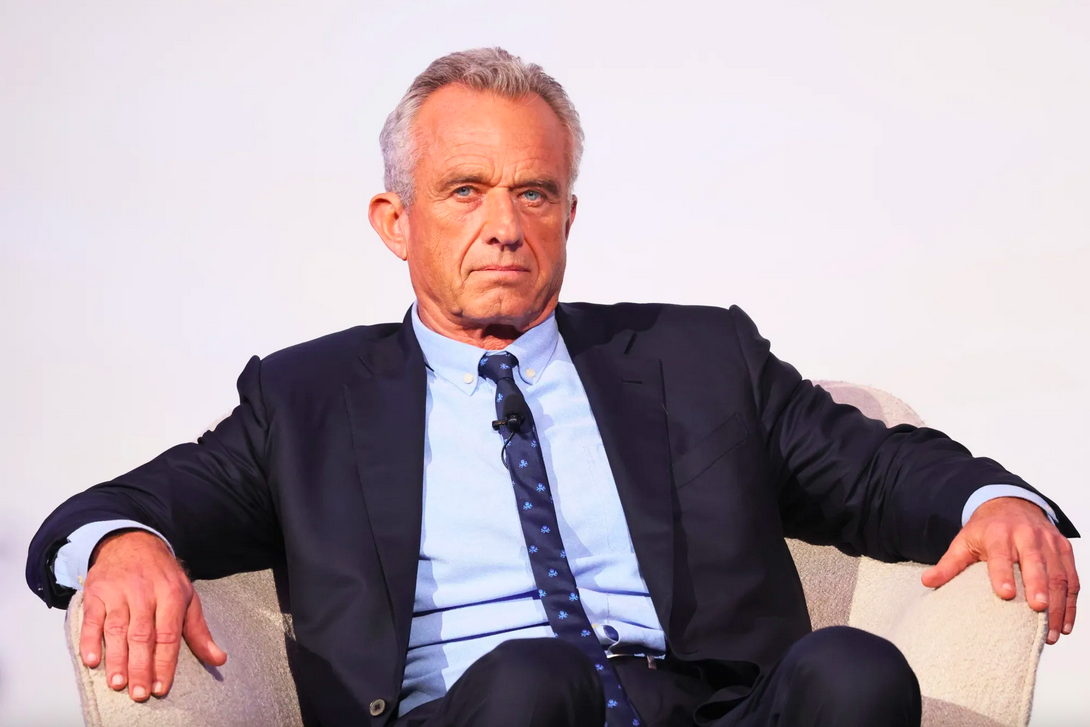
Newly appointed Health Secretary Robert F. Kennedy Jr. has pledged to ban Big Pharma’s grip on television advertising, aiming to break the industry’s influence over public health and the media.
“One of the things I’m going to advise Donald Trump to do in order to correct the chronic disease epidemic is to ban pharmaceutical advertising on TV,” Kennedy told a crowd in Glendale, Arizon, which responded with a standing ovation.

BYPASS THE CENSORS
Sign up to get unfiltered news delivered straight to your inbox.
You can unsubscribe any time. By subscribing you agree to our Terms of Use
Latest Video
“There’s only two countries in the world that allow pharmaceutical advertising on the airwaves. One of them is New Zealand, and the other is us, and we have the highest disease rate, and we buy more drugs, and they’re more expensive than anywhere in the world.”
Banning pharmaceutical companies from advertising on television could have profound benefits—promoting public health while severing a key revenue stream for mainstream media, which has become financially dependent on the industry and unable to provide truly independent information to the public.
The total ban on pharmaceutical ads on TV would be a major financial escalation in that fight. And while lawsuits or FCC inquiries are targeted, the prospect of a blanket ban on pharma ads has media executives scrambling.
Steve Tomsic, CFO of Fox Corp., which owns Fox News and the Fox broadcast network, was asked about the possibility of a ban Dec. 9 during a UBS conference.
“Is it a concern? We shouldn’t be flippant about it,” Tomsic said, adding that Big Pharma advertising represented single digits of the company’s overall revenue and that Fox was “prepared to be proven otherwise, but it is going to be unlikely to be a blanket ban of all pharma.”
Even a modest decline in pharmaceutical ad revenue would cost networks like Fox hundreds of millions of dollars annually, with ripple effects across the entire TV industry. Media measurement firm iSpot.tv estimates that Big Pharma will pour over $5 billion into national TV advertising this year alone, with billions more funneled into digital and streaming platforms.
Just ten blockbuster drugs account for over $1 billion in annual TV ad spending, according to FiercePharma. Brands like Ozempic and Jardiance each burn through $10 million a month, while Skyrizi leads the pack, spending more than $30 million monthly on TV ads.
Yet, despite their financial dependence on pharma dollars, not all media voices are resisting the idea of a ban. On CNBC’s Squawk Box (Dec. 23), hosts Andrew Ross Sorkin and Joe Kernen openly discussed the benefits of such a move—even while acknowledging their own network, NBCUniversal, profits handsomely from the industry’s ad spend.
“Don’t you think doctors, should, if you need something, prescribe it? I don’t need to be sold something for something that I don’t even have,” Kernen said, sparking agreement from Sorkin.

